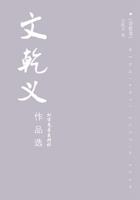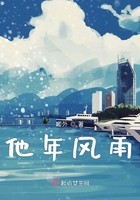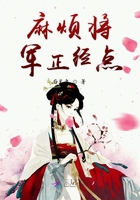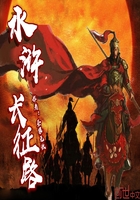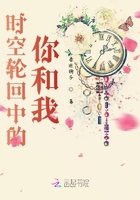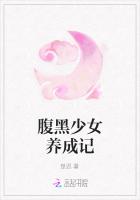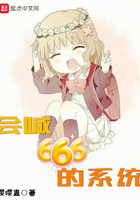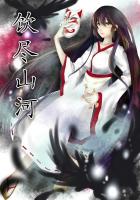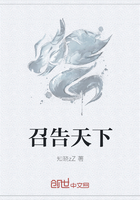[14]回将凤阙瞻:回头看宫殿。
[15]翠华:装饰着翠鸟羽毛的旗子,是天子所用。
[16]九鼎:相传夏禹铸九鼎,成为历代传国之宝。这里代指国家。
[17]蝉鬓:古代妇女鬓发的一种式样,梳得像蝉翼一样薄。这里指杨贵妃。
Theory on Literary Translation of the Chinese School
The theory on literary translation of the Chinese school owes its origin to traditional Chinese culture, including the Confucian and the Taoist school of thought respectively represented by Thus Spoke the Master and Laws Divine and Human.
It is said in the first chapter of Laws Divine and Human that truth can be known, but it may not be the truth you know, and that things may be named, but names are not the things. When applied to literary translation, this may mean that the theory on literary translation can be known, but it may not the unproven theory on the one hand, nor the scientific theory on the other, for neither literary translation nor its theory is science. As the names are not equal to the things, the translation cannot be equal to the original. As there is more difference than equivalence between the Chinese and the English language, the principle of equivalence can not be applied to the translation between them as between two occidental languages.
It is said in the last chapter of Laws Divine and Human that truthful words may not be beautiful and beautiful words may not be truthful. That is to say, there is contradiction between truth and beauty or between equivalence and excellence. A translation where equivalents are used may be called a faithful or truthful translation. When no equivalent can be found between two languages, the translator should make use of the best expressions or excellent expressions of the target language. That may be called theory of excellence.
In Thus Spoke the Master, Confucius said, “At seventy, I can do what I will without going beyond what is right.” Professor Zhu Guangqian said that this has shown the mature state of an artist. I think it may also show the mature state of a literary translator. The literal translator has used the equivalents without going beyond the original in sound; the liberal translator has described the image without going beyond the original in sense; the literary translator has described the scene without going beyond reality. Not to go beyond the original is to be truthful or faithful, and the translator has reached the ordinary level of translation. To do what one will without going beyond the original is not only to be faithful but also to make his translation beautiful, in that case the translator has attained a higher level. To excel the original without going beyond the reality it describes is to attain the highest level.
What is literary translation? It is an art of solving the contradiction between faithfulness (or truth) and beauty. How to solve it? There are three methods, namely, equalization, generalization and particularization. When there is little or no contradition between truth and beauty, equalization or equivalents may be used. When there is contradction between them, generalization may be used to make the meaning clear, and particularization to make a deeper impression.
Confucius said in Thus Spoke the Master that it would be good to be understandable, better to be enjoyable and best to be delectable or delightful. When applied to literary translation, this principle means that an understandable translation is good, an enjoyable one is better and a delightful one is best. The ontology or theory of contradition between truth and beauty, the methodology or theory of equalization, generalization and particularization, and the teleology or theory of the understandable, the enjoyable and the delectable, all owe their origin to the Confucian and Taoist schools of thoughts.
But Confucius said less about what delight is and more about how to be delightful. In the beginning of Thus Spoke the Master he said it is delightful to acquire knowledge and put it into practice; In Chapter Six he told us how Yan Hui could find delight in reading though living in a humble lane with only a handful of rice to eat and a gourdful of water to drink; In Chapter Eleven, Zeng Xi told us his delight in an spring excursion. From these examples we can see Confucius’ theory on delight or teleology, and his theory on practice or methodology. His theory is not scientific but artistic. Since literary translation is an art but not a branch of science, his theory can not only be applied to the practice but also to the theory of literary translation. As his theory has stood the test of time, it is as durable as scientific theories. A theorist on science who studies truth and the truthful should not go beyond what is truthful. A theorist on art or an artist who studies beauty and the beautiful may go beyond what is truthful and faithful.
The contradiction between truth and beauty in Chinese theory on literary translation has developed into a contradiction between equivalence and excellence. As Keats said, “Beauty is truth, truth beauty,” we may even say beauty is a virtue, a kind of excellence. When we cannot find the equivalent, we may resort to generalization or particularization.
In short, literary translation is an art to create the beautiful. This is the epistemology of the Chinese school. The contradition between truth and beauty or between equivalence and excellence is its ontology; the theory on equalization, generalization and particularization is its triple methodology; and the theory of the understandable, the enjoyable and the delectable or delightful is its triple teleology.
Xu Yuanchong
Oct. 2011

